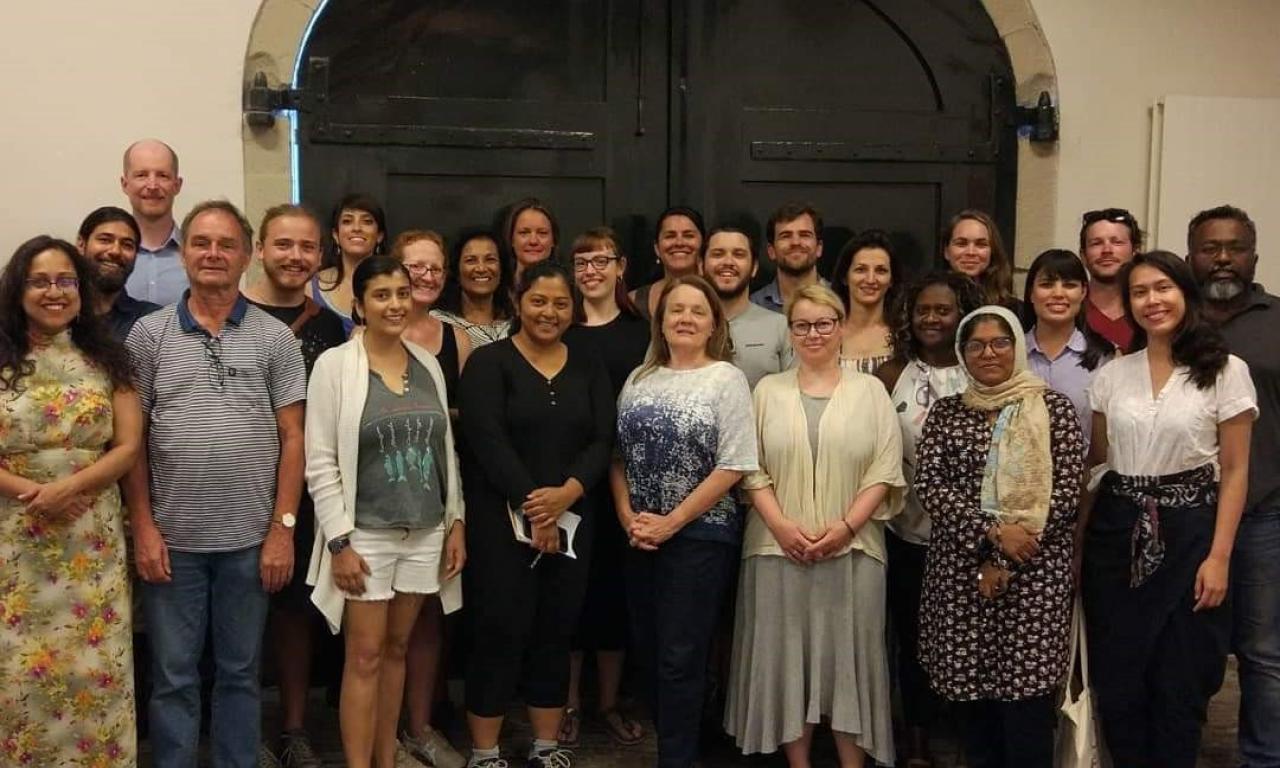
The Summer School
At the close of MARE 2019, WorldFish adjunct Professor John Kurien, issued a challenge to young scientists: “Can you work towards creating a just, joyfully gendered and fruitful future for people and the sea?”
In this spirit, the inaugural Summer School ‘Fish in Food Systems’ or FIFS brought together some 23 young scholars, conservationists and practitioners, and set them on course to integrate, challenge and shape thinking around fish in food systems. For three days, these individuals attended intensive lectures, workshops, and discussions about the contemporary debates and research on fish in food system. Four WorldFish staff and affiliated student attended the summer school with Experts, including our WorldFish Research Team Leader, Shakuntala Singh Thilsted.
Realizing the potential of fish in food systems
The FIFS summer school has provided a significant opportunity for participants to learn and share knowledge on synergies and contestations around fish value chains, food and nutrition security.
Eddie Allison gave us a sweeping overview of fish in food systems. Shankuntala Thilsted highlighted the crucial role of fish in nutrition, arguing that we should be thinking about not only food security, but also nutrition security. Holly Hapke took the participants on a deep dive into gender analysis, feminist theory, and thinking beyond men and women’s roles and responsibilities. Jeppe Kolding highlighted how common knowledge in biology does not always fit the data. Ben Delton introduced ‘the quiet revolution’ underway in the food systems of the Global south, where regional aquaculture enterprises has burgeoned to fulfill domestic demand in South East Asia, particularly Bangladesh, where domestic consumption of farmed fish is ramping up, largely unnoticed. Simeon Bush walked us through seafood commodity chains and certification. Seafood is the most widely traded, and the most valuable global commodity. Seafood certification epitomizes many moral questions about how seafood should be produced, traded and consumed. He emphasised the need to ‘reconfigure’ our understanding of markets as more the purely economic, but rather as shifting social relations.
As part of the summer school programme, participants were given chance to attend designated sessions of the MARE conference and be discussants. This has provided a platform for participants to highlight and integrate the contribution of various speakers to advance the knowledge around fish in food system.
Mentoring
Mentoring of participants’ projects and proposals, and networking opportunities were also part of the summer school programme. Participants were given the chance to discuss their projects and proposals with Experts/Facilitators while enjoying a 3-hours walk through the parklands (complete with seeing a deer), over the sand dunes and along the beach; one of a highlights of the summer school.
Moving Forward
For participants, the summer school was not only a chance to learn from established researchers, but also to gain insight into research by fellow students, who hailed from across the world, including from Solomon Islands, Canada, Bangladesh, Australia, United States of American, Germany, India, and Sweden. Many reflected that the week had strengthened the ways they would apply food systems thinking into their own work, and had inspired and reinvigorated their own research.